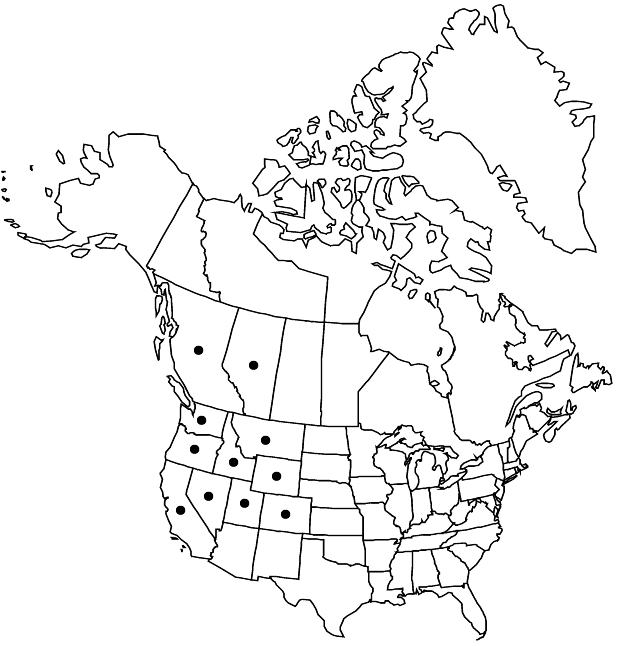Difference between revisions of "Gaultheria humifusa"
Mem. New York Bot. Gard. 1: 300. 1900 ,.
imported>Volume Importer |
imported>Volume Importer |
||
| Line 59: | Line 59: | ||
|publication year= | |publication year= | ||
|special status=Endemic | |special status=Endemic | ||
| − | |source xml=https:// | + | |source xml=https://bitbucket.org/aafc-mbb/fna-data-curation/src/2e0870ddd59836b60bcf96646a41e87ea5a5943a/coarse_grained_fna_xml/V8/V8_1001.xml |
|subfamily=Ericaceae subfam. Vaccinioideae | |subfamily=Ericaceae subfam. Vaccinioideae | ||
|genus=Gaultheria | |genus=Gaultheria | ||
Latest revision as of 22:41, 5 November 2020
Subshrubs, creeping, mat-forming, stoloniferous; roots adventitious or fibrous. Stems spreading and repent, 10–30 cm, (slender), usually hirtellous, sometimes glabrous. Leaf blades orbiculate, ovate, or broadly elliptic, 1–2.5 cm, base obtuse to rounded, margins serrulate (teeth bristle-tipped), apex obtuse or acute, surfaces glabrous. Inflorescences axillary, solitary flowers; bracts green with reddish margins, broadly ovate, 2.5–3 mm, exceeding sepals, glabrous. Pedicels green, 0.5–1.5 mm, glabrous; bracteoles 1–3, green or pink-tinged, deltate, 0.5–1 mm, glabrous. Flowers: sepals 5, connate ca. 1/2 their lengths, red to deep pink, narrowly ovate, 2–2.5 mm, glabrous; petals 5, connate basally, white to pale pink, 2.5–4 mm, glabrous, corolla campanulate, lobes (spreading), 1.5–3 mm; filaments broadest proximally, glabrous; anthers without awns, dehiscent by terminal pores. Fruits red, 5–7 mm wide.
Phenology: Flowering Jun–Jul; fruiting Jul–Sep.
Habitat: Coniferous woodlands and in moist soils along stream banks, subalpine to alpine wet meadows, rocky mountain slopes
Elevation: 900-3700 m
Distribution

Alta., B.C., Calif., Colo., Idaho, Mont., Nev., Oreg., Utah, Wash., Wyo.
Discussion
Selected References
None.